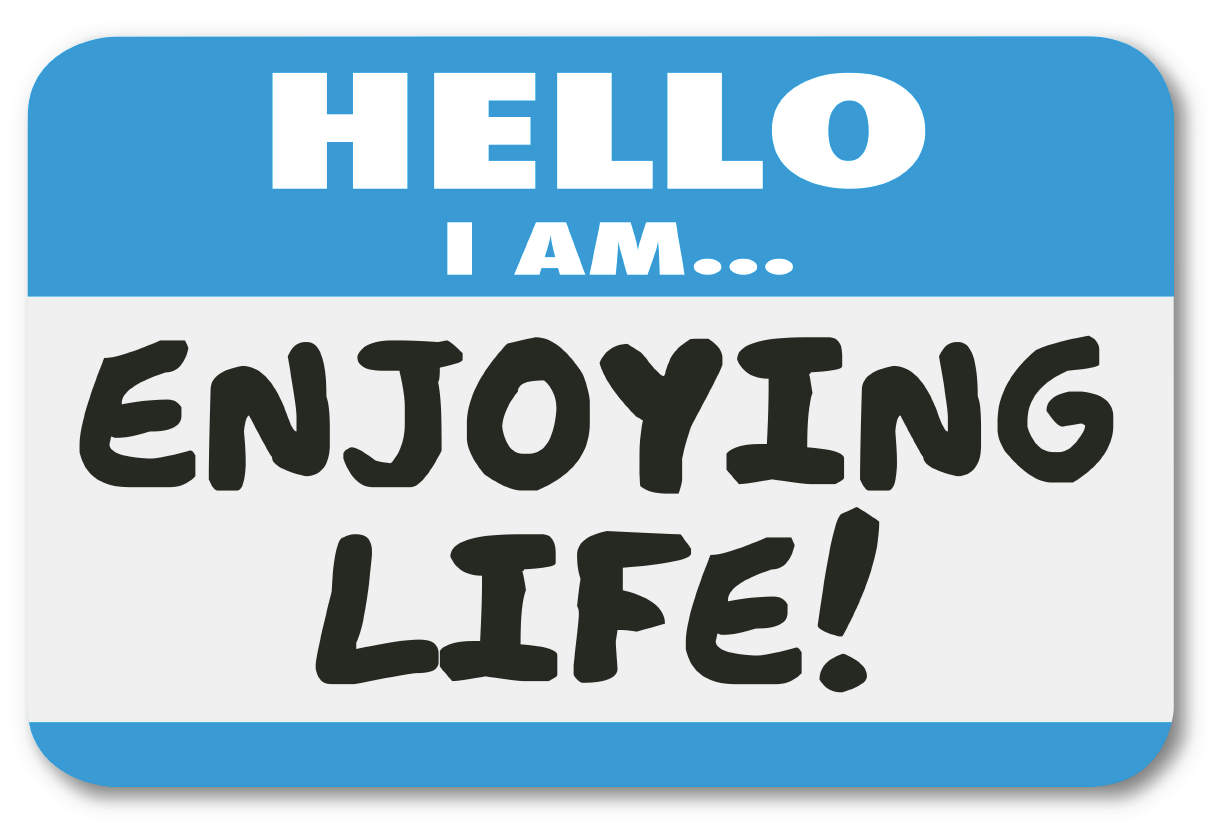Ethics Blog Virtue of the Week Series
Week #2: Compassion
Do you desire authentic happiness – the kind where you wake up joyful and possess a heart filled with peace and contentment? Are you interested in treating people better (even the mean ones) or mending some broken relationships (even the ones you didn’t break)? Do you struggle often with how to make the right call in the face of fear or moral uncertainty? I do! I want more happiness, contentment, healed friendships, and courage to navigate tough times . . . desperately! If you want more of this as well, you’ve come to the right place.
Every week on the Ethics Blog we will cover the Virtue of the Week! If you think that a Virtue of the Week sounds as nerdy a topic as humanly possible. . . you would be correct. However, it’s nerdy in a wonderful way. Work with me here. We are going to do the kind of thinking that can actually make you a better and happier person, the kind of attitude adjusting we should undertake continually. Let’s “nerd it up” for the greater good.
If you missed the intro to this series last week, please click the purple box below. Otherwise, jump over it and keep reading.
New to virtue-seeking? / Click here
What in the World Is A Virtue?
The concept of virtue-seeking found prominence with one of the world’s greatest philosophers, Aristotle. He talked a great deal about people becoming virtuous in order to live what he called the Good Life. This is the type of existence where one lives in a state of overflowing happiness (in Greek, eudaimonia). To Aristotle, finding overflowing happiness, or flourishing, is every rational person’s ultimate goal. In other words, if you are rational, you will seek happiness as the end of all ends. It will drive how you act on a daily basis. If you don’t agree, Aristotle would likely say that you are acting irrationally.
But, bluntness aside, in this case Aristotle is: (1) totally arrogant, (2) absolutely correct, or (3) maybe both. After speaking with hundreds of thousands of people in audiences nationwide over the past twelve years, I’ll go with option #2. Through my travels, I have found that most everyone desires happiness as their ultimate goal. They tell me that there is nothing greater to yearn for; happiness is ultimate to most everyone.
Think about your life. Why do you do the stuff you do every day? I’d bet dollars to doughnuts that you do what you do primarily to be authentically happy. Let’s elaborate. Why do people dedicate themselves to their work? I think we work so hard because doing good in our careers fulfills us and being fulfilled makes us authentically happy. Why do we get married, have kids, travel, and hang out with family and friends? I would venture that uniting in love, watching kids discover the world, globetrotting, or hanging out with loved ones makes us really, really happy. The truth is, once we’re happy in this way, we don’t wait for something else better or grander to more pleasurable to happen. We don’t need that. Happiness is not a stepping stone. It’s the ultimate goal, the end of the road. So, it appears that Aristotle is right. Go figure! J
If you agree so far, then let’s come up with a blueprint to figure out what virtues are and how to pursue them appropriately. On this front, I have some good news and some bad news. The good news is that discovering virtues is the easy part; it’s actually amazingly intuitive and simple. The bad news is that habitually acting in accordance with each virtue is tedious and hard – like most stuff in life worth doing. So, let’s start with the easy part. How do you spot a virtue?
A virtue is a character trait that the vast, vast majority of people inherently consider to be good. They need not think deeply to decide; it’s obvious.
The Ciocchetti Airport Test
You can use the so-called (by me only I think) Ciocchetti Airport Test to come up with a list of virtues that fit this definition. This wonderfully-named thought experiment works like this. Imagine you went to any airport anywhere around the world, tapped a random person on the shoulder, and asked, “Excuse me. Is it good to be honest?” Everyone you ask is very, very likely to say yes. The same thing would happen if you asked a different person about whether it’s good to be compassionate or courageous. We humans just tend to agree that these traits are good things to possess. And no one you ask needs to do a lot of research to come to these conclusions. We each just feel that these things are inherently good and say so. This makes them virtues.
Let’s look at the flip side of the coin. You would likely get a different reaction if you asked random people at airports across the globe if it’s good to be wealthy. Some people would definitely say yes, others no. Some might think about it for a long while, shrug their shoulders and remain confused. That response doesn’t mean that there is anything wrong with wealth. It just means that wealth is not a virtue because we all don’t inherently agree that it’s an inherently good to possess.
We’ve Identified Virtues . . . Now What
Armed with a list of virtues, you now need to incorporate them into your life. Remember, this is the hard part. It’s not good enough just to think about being a good person. You must also act on those thoughts in order to flourish. So, you should live every day by practicing more honesty, compassion, and courage. You should make these virtues habits and constantly try to hone them while at the same time eliminating vices such as envy, greed, meanness. As you do this, says Aristotle, you will become more and more virtuous and, thereby, happier and happier. That sounds like a great plan. So, what’s the hold up? Why don’t more people do this all day long? There are a few key roadblocks:
We tend to default to the easier path in life. I call this the Moral Minimum. For example, most times, it’s easier to lie than tell the truth. It’s generally easier to be mean and hold grudges than it is to swallow our pride and be compassionate. It tends to be much easier to act cowardly than it is to muster courage in scary situations. So, that’s what we pick . . . because it’s easier.
Becoming a good person takes practice. We are good at buying-in, for a time. After hearing my speeches, people are excited to try this out. I’m good at motivating people for an hour. Then . . . life gets in the way and we find it’s tiresome and tedious to consistently seek virtues. We don’t have a ton of support for this from our families and friends and our plates are full.
Finally, we don’t see results right away. Becoming a good person is like obtaining a chiseled physique – it takes a great team of time, energy, and attention. We want results now and this just doesn’t work that way.
This stuff is hard. But, I encourage you to still try. Overcome these roadblocks because the reward is worth it – overflowing happiness. Come on, that’s a least worth a try! If you’re with me, here are the next steps.
The Golden Mean
Here is the last part of the theory, the link that ties it all together. We’ve established what virtues are and how hard it is to turn them into habits. But, how do we know if we’re doing it right when we try to be better people? That answer rests in the Golden Mean – the place between each virtue’s deficiency and excess. Think about it like this: people possess every virtue imaginable. We all have some loalty, dependability, friendliness, patience, etc. So, that’s good. It’s not like we start from a blank slate. The problem is that we possess too much of some virtues and too little of others. These are the excesses and deficiencies that cause us unhappiness.
Take honesty, for example. Someone possessing too little of the virtue of honesty is a liar. Right? This isn’t a trick question. Would you say that the world has too many liars? Me too! Are you one of them? If so, stop lying so much. Philosophy! It’s not that hard.
On the other extreme lies bluntness, a vice that represents an excess of honesty. Blunt people hurt people with their harsh words. I am nore blunt than I am a liar. But, I need not start lying to even it out. This isn’t math. I repeat, this is not math. By lying to try and cancel out your bluntness, you will be miserable.
Instead, blunt people like me need to bite our tongues more often. We must stop hurting people with snarky and mean comments. This moves us closer to the Golden Mean of honesty. And on and on it goes with every virtue. Seeking the Golden Mean is what we will cover on Saturdays going forward. We will choose key virtues and discuss how to avoid their extremes. Sound fun? Tune in and see for yourself.
Compassion: A Way to Rise Above Ourselves
A perfect way to ponder compassion comes from professor Mason Cooley: “Compassion brings us to a stop, and for a moment we rise above ourselves.” Isn’t that a wonderful way to think of it? When we’re compassionate, we stop worrying solely about our lives, our problems, and our to-do lists and begin to care about the plight of others. We plug into the people around us, lift them up, and try and make their lives shine. When we help people in need like this . . . we glow. Think about how amazing it felt the last time you truly felt someone’s pain and then helped them out of a rough spot. What a great feeling, right? Now, think about how the person you helped felt. Probably one thousand times better than you felt, don’t you think?
Let me add some context. When I was a little kid, we were flat broke. My dad was AWOL and I remember watching my mom struggle to find enough money to buy groceries. Though I don’t remember a ton about being seven years old, I do remember one day very clearly. I remember mom crying on her way to the mailbox one afternoon. She was working really hard, but money was tight. She got to the mailbox, opened the little door and found a $200 gift certificate for King Soopers (a local grocery store). It was in a blank envelope, no one’s name was attached. There was no postage; someone just stuck it in our mailbox and drove off. That money would buy us groceries for a month.
It’s tough to put into words the look on my mom’s face and her reaction. The best picture I can paint is: pure happiness and humbling thankfulness to the point of tears. I remember that she talked about this act of generosity non-stop for the next week. Who could have done such a kind thing? Why didn’t they put their name on it? How did they know that we were so desperate?
She went through names of people we knew and even called some friends and family members to ask. No one took responsibility. She thought it could have come from someone at our church, but how could they know our financial situation? We never found out who stuck that money in our mailbox. Of course, that was the donor’s point. It wasn’t done for the recognition, but merely because it was a compassionate thing to do.
Even without any recognition from us, my guess is that donor felt pretty good after such a kind act. But, I can promise that my mom felt one thousand times better. And, she passed that feeling on to my sister and to me – so much so that here I am writing about it 30 years later. The gift-giver made a huge difference in our lives with that $200. The act was the dictionary definition of true compassion. I’ll prove it.
Compassion Defined
According to Merriam-Webster, compassion is possessing “sympathetic consciousness of other’s distress together with a desire to alleviate it.” What a great definition! Notice the two pieces of true compassion: (1) feeling sympathy and then (2) desiring to help. Too often we default to the sympathy piece because that’s easier. It’s easy to feel sorry for someone and do nothing to make life better for that person. We leave the help piece to someone else. In these instances, I guess we can call ourselves “half-compassionate” at worst or perhaps empathetic at best. That doesn’t sound so great does it? So, this week, let’s strive to do better.
As you think about how to be more compassionate this week, here are some common questions that help break down the concept:
1. How Do Compassion & Empathy Differ?
Compassion – properly defined – is conceptually broader than empathy. Empathy is the ability to relate to and share another’s pain. Both compassion and empathy are virtues and worthy of praise. Compassion, however, is more action-guiding. Empathy is a state of mind while compassion is a state of mind PLUS intentional acts meant to alleviate another’s pain. Put it like that and I bet you’d rather someone show you compassion than empathy when bad things happen! Me too.
Here’s an example. Let’s say that your best friend lost her job. It was a good job and she relied on the steady paycheck. You empathize with her when you put yourself in her position and try to feel as if you just lost a much-needed job. In a sense, you take on her pain. Good friends empathize like that. Compassion, on the other hand, is feeling sad that your friend lost her job AND then helping her improve her situation via a different / better job or paying half her rent for a few months. Our best friends show compassion like that.
2. But, Isn’t Compassion Just A Form of Pity?
Some people define compassion as the mere pitying of another. To pity someone is to feel sorry for them and their pain. This feeling of pity may be sincere but, when we pity someone, we inherently think of them as lesser than we are. Think of commercials that show starving children in third-world countries. The intent is often to invoke a sense of pity in the viewer. And it works. We feel bad for them. But, then we rationalize changing the channel without donating because they are just so far away. In philosophy, this approach is called an “appeal to pity” – an attempt to manipulate someone’s emotions so that they give money or support a cause. It’s ethically questionable and isn’t that effective because we don’t see these people as our peers. We pity them but don’t necessairily have compassion for them.
This is why I think it’s a mistake to conflate compassion with pity. The origin of the word compassion (or it’s “etymology” for my fellow nerds in the group) is Latin and means to co-suffer with another. Think about it like this: if you truly co-suffer with someone then you want the thing causing the pain to stop, right? That means that you would take actions to make it stop, right? You wouldn’t pity the person you co-suffer with or think of them as lesser than you. Their pain is your pain and you want to make it stop.
So, I think the proper way to look at compassion is the sympathy PLUS action definition discussed above. My advice is to forget pity and practice more compassion. You cannot help everyone in need, of coruse, which is why empathy still matters. Sometimes that’s all people need – someone to empathize with their situation. But, there is a chance you can be more compassionate to a few more people. That’s the goal for this week.
3. How Do I Find The Golden Mean of Compassion?
Remember, you can lack compassion or be too compassionate. My guess is that the vast majority of us fall on one side or the other of this spectrum. Neither of these positions are virtuous and straying from the Golden Mean in this way is disruptive to authentic happiness.
For example, a person who lacks compassion is a jerk. Do you believe the world has too many jerks? Are you one of them? If so, you need to practice more compassion. This will move you towards the Golden Mean of this key virtue. This will also make you a happier person and your community a better place. That is one of my goals this week – to be less of a jerk when people rub me the wrong way and, instead, practice more compassion. For me, that will take practice. But, the path to happiness is paved with the habitual practicing of virtues.
On the other hand, are you too compassionate? These are the doormats of the world. And, being a doormat is not a good thing either. Doormats get walked all over, they are used and abused by the jerks of this world. Doormats need to be less compassionate! This will move the rest of you towards the Golden Mean of this key virtue. Who talks like that? Well, Aristotle of course.
Aristotle’s advice is for each of us to seek the Golden Mean between jerk and doormat. Therein lies true compassion.
In Conclusion . . . Be Compassionate
(you knew I was going to say that)
So . . . here is your homework for the week:
- Identify whether you are more of a jerk or more of a doormat? Then, add some compassion to your life or remove some accordingly. Do this for a week and see if you start to become a happier person.
- Try to differentiate between pity, empathy, and compassion in your daily decisions. How often do you pity people? Stop it. How often do you empathize with people but do nothing to help? Do that some but not all the time. And, how often do you act compassionately – feel sympathy and then lend a helping hand? Do more of this. Try to slowly move from pity to compassion keeping in mind that you cannot help everyone in need, but you can help someone in need.
- Practice one act of compassion this week. Remember, it doesn’t have to be a huge financial or time commitment. The $200 given to my mom made a huge difference to our struggling family and my guess is that the donor barely felt the financial pain of the gift. Taking the time to chat with someone who is lonely counts too. As does helping someone gain confidence – whether in school or at a job. The universe of ways to practice compassion is vast . . . so pick one.
Oh and, by the way, compassion is what we expect from high-character individuals. This is why we answer, “Yes, for sure,” when asked if we are compassionate. No one says. “No, I’m really more of a jerk.” They may actually be a jerk, mind you, but no one admits that. We all want to at least appear compassionate. But, I believe that we actually want to be compassionate too. Here is your chance.
Let’s take a step back this week and (1) think about and (2) then practice what it means to rise above ourselves and care more about others . . . to be truly compassionate.
- Check out COREYSPEAKS.COM for more on popular keynote speaker Corey Ciocchetti. Corey has keynotes on happiness, integrity, ethical leadership, ethical decision-making, morale, stress reduction, and professionalism. Corey has spoken in 44 states and over 250 cities since 2007.
- Check out Corey’s other cool ethics blog posts on LEADERSHIP and HAPPINESS – you won’t regret it.
- Corey’s new book, INSPIRE INTEGRITY: CHASE AN AUTHENTIC LIFE is available now!





